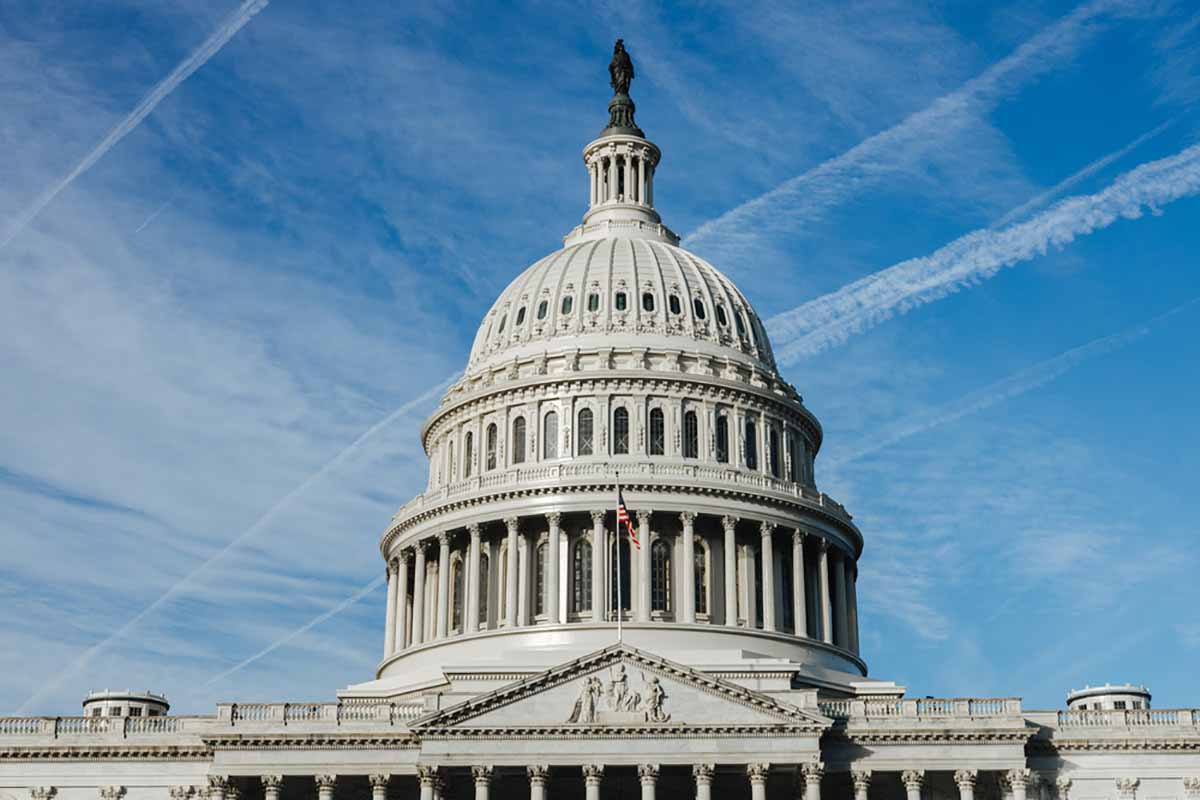
A bill passed by the U.S. House prohibits the export of e-scrap, with a number of exceptions. | Dennis Diatel/Shutterstock
The U.S. House of Representatives passed the America COMPETES Act on Feb. 4, moving a restriction of e-scrap exports closer to becoming law than previous efforts achieved.
The America Creating Opportunities for Manufacturing, Pre-Eminence in Technology, and Economic Strength Act of 2022 (America COMPETES Act) is intended to boost U.S. competitiveness with China, specifically in semiconductor manufacturing and research.
But the sprawling bill also includes a section prohibiting e-scrap exports. The only exempt items are electronic parts of vehicles, working used electronics, electronics at low risk of being counterfeited and recalled electronics. The bill wouldn’t affect exports of separated e-scrap commodities and components, such as circuit boards shipped to an overseas smelter to recover copper and precious metals.
The e-scrap section in the bill mirrors language of the Secure E-Waste Export and Recycling Act (SEERA), which has been introduced five times since 2015 and failed to move past introduction each time. Similar bills but with different names were introduced as early as 2010.
“As the second largest producer of electronic waste, the United States has a strong economic and national security incentive to enhance domestic e-waste recycling capacity rather than exporting to China and other countries.” – text of America COMPETES Act
According to the COMPETES bill text, “it is in the national security interests of the United States to ensure that the export of electronic waste does not become the source of counterfeit goods that may reenter electronics supply chains in the United States.”
A 2012 Senate Armed Services Committee Report found 1,800 cases of counterfeit electronic parts from China being used. The parts showed up in Air Force and Navy planes, assemblies intended for special operations helicopters and other items, according to the bill.
The bill also calls out the environmental and human health damage that can result from e-scrap exports if they are mismanaged in other countries.
Competition with China for the e-scrap recycling market is also a driver of the export restrictions, according to the bill. China is now the world’s single largest generator of e-scrap and is on track for its industry to total $23.8 billion by 2030.
“As the second largest producer of electronic waste, the United States has a strong economic and national security incentive to enhance domestic e-waste recycling capacity rather than exporting to China and other countries,” the legislation notes.
Prospects for passage
President Joe Biden supports the bill, saying in a Jan. 25 statement that he was “heartened by Congress’ bipartisan work so far, and its commitment to quick action to get this to my desk as soon as possible.”
“Together, we have an opportunity to show China and the rest of the world that the 21st century will be the American century – forged by the ingenuity and hard work of our innovators, workers and businesses,” he said in the statement.
In a press release from House Speaker Nancy Pelosi’s office, Rep. Bennie G. Thompson, homeland security committee chairman, said the bill would “ensure America remains competitive in the world, while boosting our economic and national security.”
“Homeland security provisions in this bill will boost domestic sourcing of vital homeland security equipment and supplies, create new opportunities for small businesses and improve the security of DHS’ supply chain,” Thompson said.
Several organizations and businesses have supported the bill, including Intel, American Automakers Policy Council, Teamsters, AFL-CIO and the U.S. Chamber of Commerce.
The Coalition for American Electronics Recycling (CAER) has long supported SEERA, while the Institute of Scrap Recycling Industries (ISRI) has opposed SEERA legislation in the past.
ISRI’s chief lobbyist Billy Johnson told E-Scrap News that restricting exports was not a good solution to counterfeit chips and would hinder businesses’ ability to compete on the global market of used electronics.
He said a better solution is one already put in place by the National Defense Authorization Act – to create a secure supply chain and test chips before putting them in products.
“Restricting exports from the U.S. does not do at all what they are trying to do with the bill,” he said, and instead could cause more electronics to be put in a landfill when they are wanted for reuse elsewhere in the world.
Johnson said he expected the Senate would pare down the bill in the coming weeks.
“It’s a global marketplace and we’ve got to respond to it,” he said.
The COMPETES bill passed the Democrat-controlled House on a vote of 222-210 on a near party-line vote. Rep. Adam Kinzinger, R-Ill., voted in favor while Rep. Stephanie Murphy, D-Fla., voted against the bill.
The bill goes next to the Senate, which passed its own similar legislation, the U.S. Innovation and Competition Act, last year. According to CNN, an aide for the majority staff of the House Science Committee said the expectation is that differences between the House and Senate bills will ultimately be reconciled. According to The Wall Street Journal, Senate Republicans are expected to push to remove certain provisions of the COMPETES Act in a final bill, although the debate hasn’t touched on the e-scrap exports language specifically.


